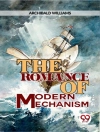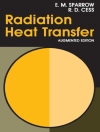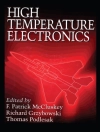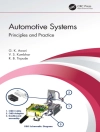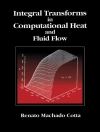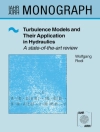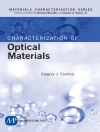This book presents a comprehensive study of all important aspects of tribology. It covers issues and their remedies adopted by researchers working on automobile systems. The book is broadly divided in to three sections, viz. (i) new materials for automotive applications, (ii) new lubricants for automotive applications, and (iii) impact of surface morphologies for automotive applications. The rationale for this division is to provide a comprehensive and categorical review of the developments in automotive tribology. The book covers tribological aspects of engines, and also discusses influence of new materials, such as natural fibers, metal foam materials, natural fiber reinforced polymer composites, carbon fiber/silicon nitride polymer composites and aluminium matrix composites. The book also looks at grease lubrication, effectiveness and sustainability of solid/liquid additives in lubrication, and usage of biolubricants. In the last section the book focuses on brake pad materials, shot peening method, surface texturing, magnetic rheological fluid for smart automobile brake and clutch systems, and application of tribology in automobile systems. This book will be of interest to students, researchers, and professionals from the automotive industry.
Table of Content
Introduction.- Tribology of Automotive Engine.- Materials Aspects in Engine.- Tribo-Performance of Polymer Composite in Automotive Application: a Review.- Surface Coatings for Automobile Applications.- Prospects of Cavitation in the Field of Internal Combustion Engines.- Tribological performance of surface textured automotive components: A review.- Influence of Surface Texturing in Controlling Friction and Wear.- Influence of fillers on thermo-mechanical and tribological behavior of GFRP composites.- Mechanical and Erosion characteristics of natural fiber reinforced polymer composite: Effect of Filler size.- Erosion Wear Behaviour and Dynamic Mechanical Analysis of Hybrid Reinforced Polymer Composite for Automotive Application.- Effect of Reinforcements on the Tribological behavior of Aluminum Matrix Surface composites.- The Future of Metal Foam Materials in the Automotive Industry.- The Potential of Natural fibers/ fillers for Automotive Sector.- Lubrication Aspects in Automobile.- Sustainable Lubrication in Automobiles.- Grease Lubrication.- Lubrication Effectiveness and Sustainability of solid/liquid Additives in Automotive Tribology.- The Potential of Bio-lubricantsin Automotive Tribology.- Asbestos free braking pads by using organic fiber based reinforced composites for automotive industries.- Analysis of Partial Texture Journal Bearing Lubricated with Couple Stress Fluids.- Shot peening effects on abrasive wear behavior of medium carbon steel.
About the author
Jitendra Kumar Katiyar is an Assistant Professor in the Department of Mechanical Engineering, SRM Institute of Science and Technology, Kattankulathur, Tamil Nadu, India. His research interests include tribology of carbon materials, polymer composites, self-lubricating polymers, lubrication tribology and coatings for advanced technologies. He obtained his BE from UPTU Lucknow in 2007and his Masters and Ph.D. from the Indian Institute of Technology Kanpur in 2010 and 2017 respectively. He is affiliated with several professional societies including the Tribology Society of India, Malaysian Society of Tribology, and The Indian Society for Technical Education (ISTE). He has published more than two dozen papers in reputed journals and international conferences and also serves as a reviewer in many reputed journals.
Shantanu Bhattacharya is a Professor of Mechanical Engineering and the Head of the Design Program at Indian Institute of Technology Kanpur. Prior tothis, he completed his MS in Mechanical Engineering from Texas Tech University, Lubbock, Texas, and a Ph D in Bioengineering from the University of Missouri, Columbia, USA. He also completed postdoctoral training at the Birck Nanotechnology Center at the Purdue University, USA. His main research interests are design and development of micro- and nano-sensors and actuation platforms, nanoenergatic materials, micro- and nano-fabrication technologies, and water remediation using visible light photo catalysis, and product design and development. He has received many awards and accolades, including the Institute of Engineers Young Engineer Award, the Institute for Smart Structures and Systems Young Scientist Award, the Best Mechanical Engineering Design Award (National Design Research Forum, IEI), and Fellowship from the High Energetic Materials Institute in Australia, Fellowship of the Institution of Engineers (India).
Vinay K. Patel is an Assistant Professor in the Department of Mechanical Engineering, Govind Ballabh Pant Institute of Engineering and Technology, Pauri Garhwal, Uttarakhand, India. He completed his Ph.D. from Indian Institute of Technology Kanpur in 2015, specializing in nano-energetic materials. His research interests include nano-energetic materials, MEMS, welding and tribology. He has published 25 peer-reviewed journal articles, 7 conference papers, 8 chapters and edited one book on nano-energetic materials.
Vikram Kumar is a Post-Doctoral Fellow in the Department of Mechanical Engineering, IIT Kanpur. He completed his Ph D in the area of engine tribology from Department of Mechanical Engineering, IIT Kanpur. He completed his Masters in Heat and Power Engineering from UIT, RGPV Bhopal and Bachelors in Mechanical Engineering from COE, BVU Pune. As an Assistant Professor in UIT RGPV Bhopal, he taught courses on heat and mass transfer, fluid mechanics, thermodynamics and IC engine from 2010 to 2012. He has published 7 peer-reviewed journal papers and 2 book chapters. His doctoral thesis was awarded the Best Ph D Thesis Award by the International Society for Energy, Environment and Sustainability, and he has also received the CSIR Senior Research Associateship at IIT Kanpur. Currently, he is working on methanol fueled vehicles development.


